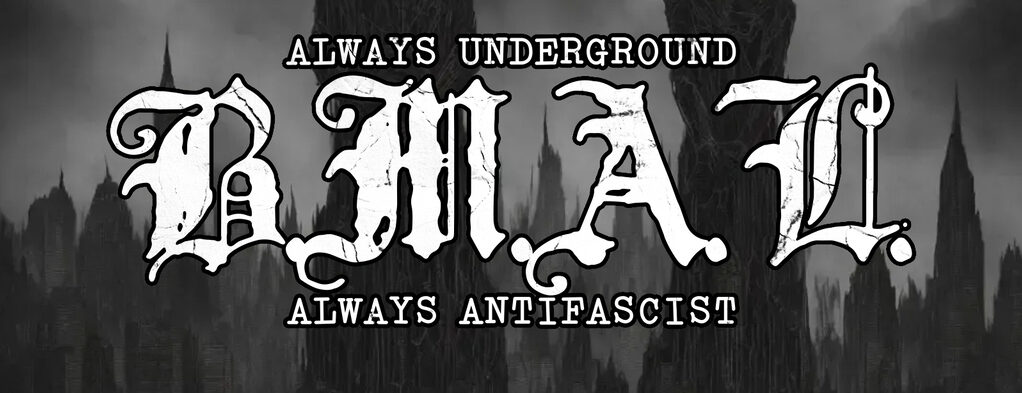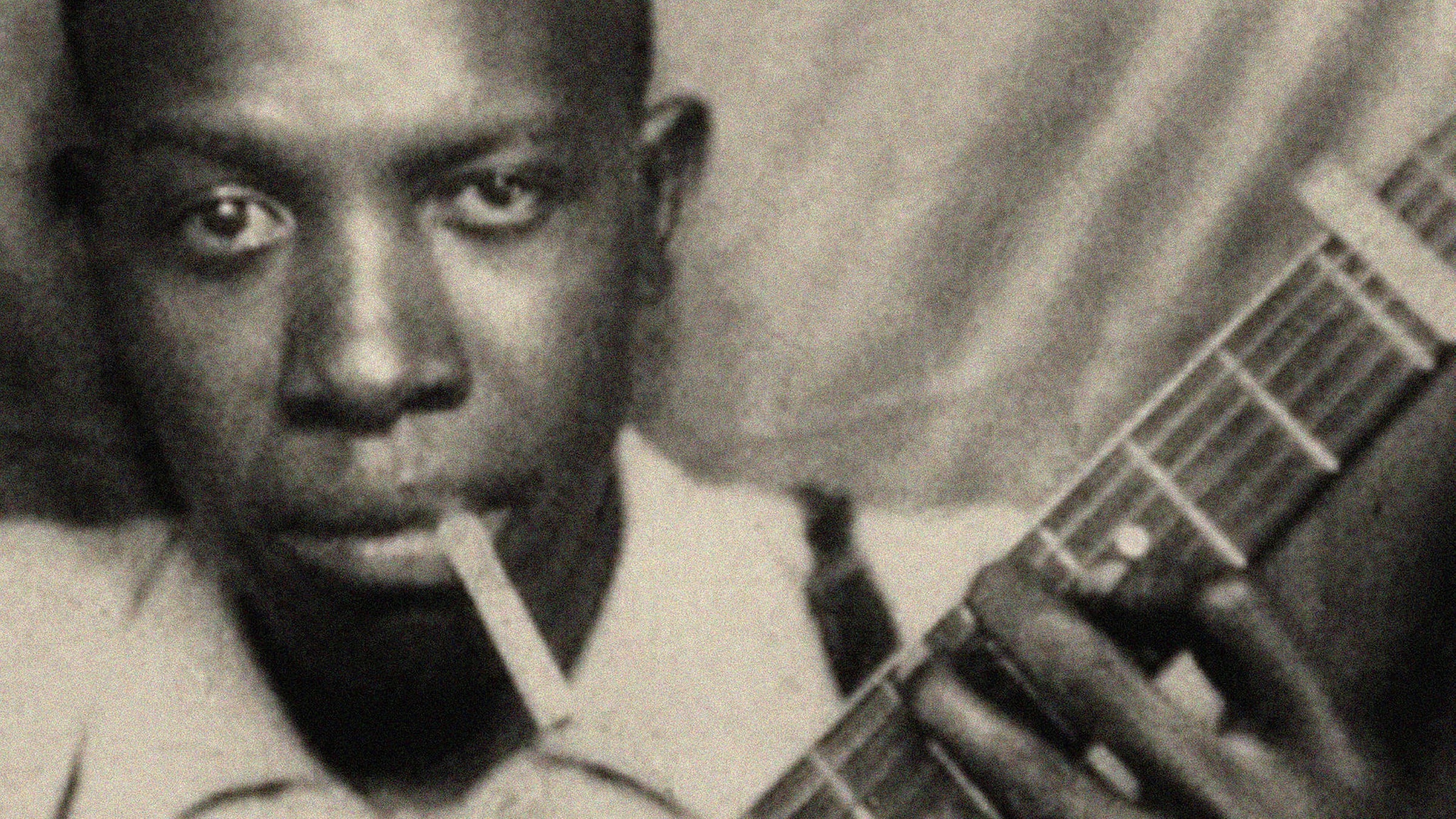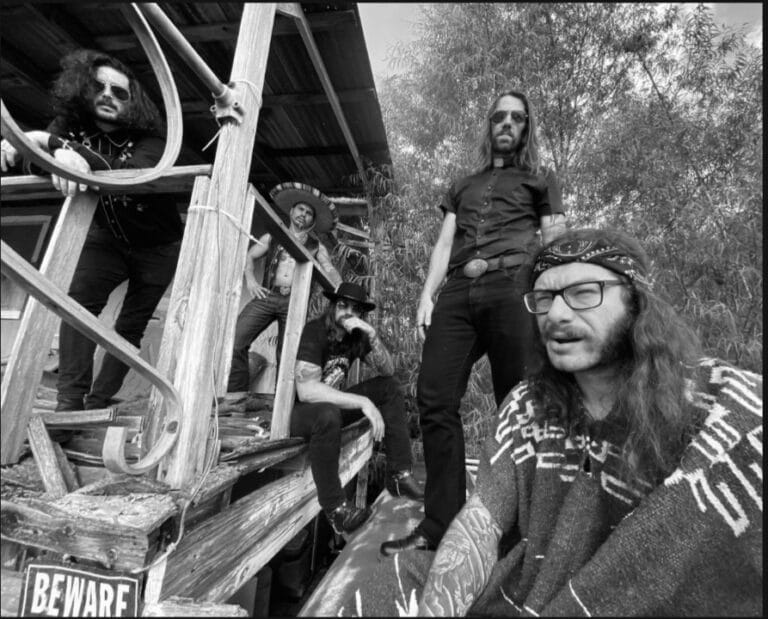Now, I know what you’re thinking: ‘Neil – you devilishly handsome and witty man – Robert Johnson was a blues musician. What has he got to do with the kind of music this site covers? He’s not metal!’
Well, I’m glad you asked because the fact of the matter is that Robert Johnson is music, and without his influence then all the bands and artists you listen to, those that have enhanced your life throughout the years, none of them would exist. It doesn’t even matter what genre or sub-genre you throw at me, it could be Norwegian Nose Flute Death Thrash for all I care, none of it, not one single note, would ever be played if it wasn’t for a vagabond from the Delta, his catalog of 29 songs, and his untimely death at the age of 27.
When you talk about Heroes of the Underground, then Robert Johnson is the Granddaddy of them all, and as for him not being ‘metal’, I think – allegedly – selling your soul to the Devil is more metal than any church burnings or stupid, pointless murders that you care to mention.
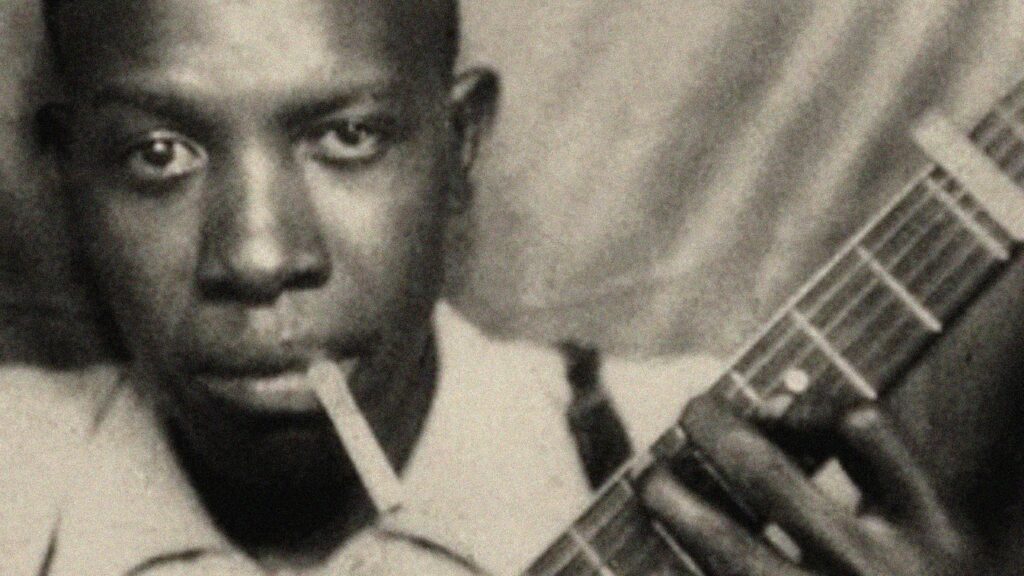
Few figures in American music history are as enigmatic and influential as Robert Johnson, his legacy has loomed large over generations of musicians. His life was shrouded in mystery, his death even more so, and the mythology surrounding his alleged deal with the devil only deepened the mystique. Yet beyond the legend lies a transformative artist whose work became the bedrock of modern blues and rock music.
As a young man, Robert Johnson was fascinated by music. He learned to play the harmonica and later the guitar, heavily influenced by bluesmen like Son House and Charley Patton. Unfortunately, though he blew a decent enough harp, his guitar skills left a lot to be desired. Quite frankly, he was terrible.
According to Son House himself:
“When he grabbed guitar the people asked why don’t he stop; he was driving ‘em all crazy with his noise…such a racket you’d never heard! ‘Get that guitar away from that boy,’ people would say.”
Never being one to let his dreams go unchecked or the moss to grow under foot for too long, Johnson left Mississippi and seemed to vanish off the face of the earth – though truth be told he had just gone to Arkansas – but when he reappeared in his old stomping ground, six months later, the boy who could deafen the deaf with his lack of six string ability had, somehow, changed into one of the best pickers to ever pick the instrument up.
On his return he met up with Son House and his running partner at the time, Willie Brown, and the transformation was not lost on the blues legend:
“We was asking if he remembered what we’d showed him but then he showed us something and we didn’t believe what we saw. I said to old Bill ‘that boy’s good’.”
Good, he was. In fact, maybe too good.
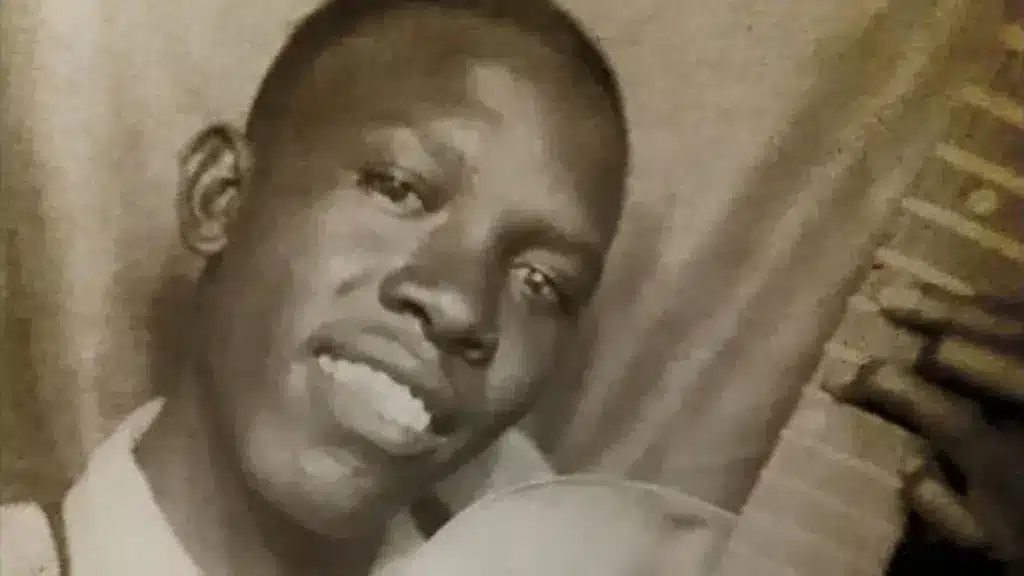
There was no way that Robert Johnson could’ve gone from clearing bars whenever he so much as looked at a guitar to being able to lay down some of the finest licks ever heard in such a small space of time, unless he’d had help from other worldy forces, right? And so began the story of Robert Johnson selling his soul to the Devil, in return for learning to play the blues. A story that is a bloody good yarn, but a yarn nonetheless.
Legend says that on a dark and stormy night – because of course – Robert Johnson, tired of being a musical failure, took his guitar to the crossroads of Highways 49 and 61 in Clarksdale, Mississippi – or Rosedale, depending on who you’re talking to and where they are trying to drum up tourist trade – where he was met by Old Nick himself who offered him an ungodly playing ability in return for his soul.
As fellow blues musician Henry Goodman tells it in a ‘vision’ he had:
“Man sitting off to the side of the road on a log at the crossroads says, ‘You’re late, Robert Johnson.’ Robert Johnson drops to his knees and says, ‘Maybe not.’
The man stands up, tall, barrel-chested, and black as the forever, closed eyes of Robert Johnson’s stillborn baby, and walks out to the middle of the crossroads where Robert Johnson kneels. He says, ‘Stand up, Robert Johnson. You want to throw that guitar over there in that ditch with that hairless dog and go on back up to Robinsonville and play the harp with Willie Brown and Son, because you just another guitar player like all the rest, or you want to play that guitar like nobody ever played it before? Make a sound nobody ever heard before? You want to be the King of the Delta Blues and have all the whiskey and women you want?’
‘That’s a lot of whiskey and women, Devil-Man.’
Robert Johnson, feels the moonlight bearing down on his head and the back of his neck as the moon seems to be growing bigger and bigger and brighter and brighter. He feels it like the heat of the noonday sun bearing down, and the howling and moaning of the dog in the ditch penetrates his soul, coming up through his feet and the tips of his fingers through his legs and arms, settling in that big empty place beneath his breastbone causing him to shake and shudder like a man with the palsy.
Robert Johnson says, ‘That dog gone mad.’
The man laughs. ‘That hound belong to me. He ain’t mad, he’s got the Blues. I got his soul in my hand. The dog ain’t for sale, Robert Johnson, but the sound can be yours. That’s the sound of the Delta Blues.’
‘I got to have that sound, Devil-Man. That sound is mine. Where do I sign?’
The man says, ‘You ain’t got a pencil, Robert Johnson. Your word is good enough. All you got to do is keep walking north. But you better be prepared. There are consequences.'”
Which is a fantastic story – even though it has been abbreviated for inclusion here – but at the end of the day, that’s all it is. A story.
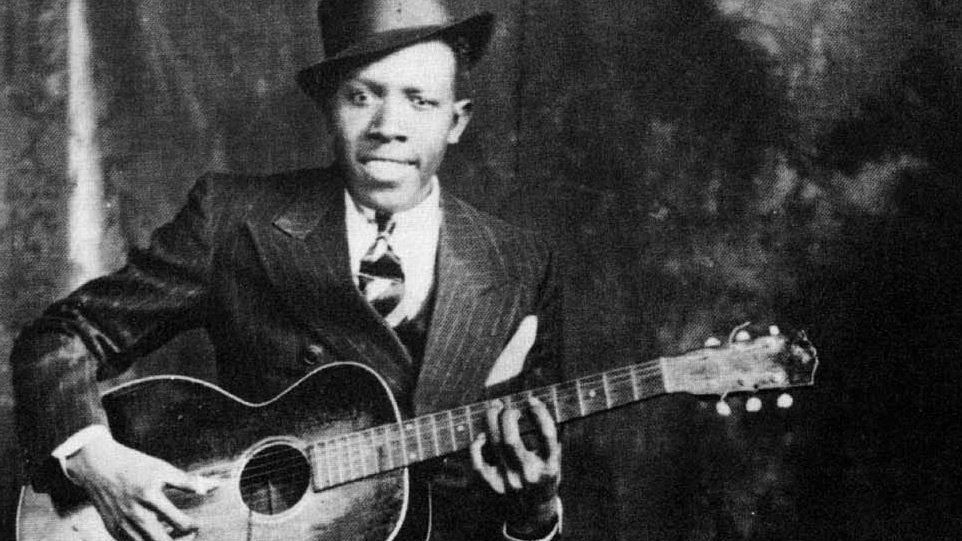
The facts as they stand are that when Robert Johnson headed out to Arkansas, he hooked up with Isaiah Zimmerman who taught him how to play properly and, as it turned out, that was all it took as Johnson was a willing pupil who soaked up everything his new teacher showed him like a sponge.
His new found brilliance lit up the scene, as did the recordings he lay down. Over two seperate sessions – the first in San Antonio and the second in Texas – Robert Johnson would lay down 29 tracks that would change the face of music for all time.
Not only were these sessions full of instant classics – such as Sweet Home Chicago, Hellhounds on my Trail, and Crossroads – Johnson had an ear for a tune and a mons for self promotion and realised very early that if he could keep his tracks to three minutes in length then he stood a much better chance of selling them to the general public, something proven by his first release Terraplane Blues which shifted an unheard of 10,000 copies.
If all he achieved was to invent the single format that we have all been accustomed too over the years, then Robert Johnson’s would’ve orobabky faded into obscurity, but his style, his ability with a guitar, and his legend have grown over the decades since his death and his influence can be heard across all forms of music.
I mean, except Pop music, but who cares about that manufactured shit?
When the British public suddenly developed a hunger for the Blues in the 1960s, Robert Johnson became a huge and important part of the music that would emerge from these Isles.
Eric Clapton called Johnson:
“…the most important blues singer that ever lived.”
While his style and sound can be heard in the blueprint of every ground breaking band from that era, from the Rolling Stones to Led Zeppelin to Black Sabbath. Robert Johson is at the root of all the genres that came from the 60s and 70s. Rock, Hard Rock, Heavy Metal, they all exist because those that made the music were inspired by a myriad of Blues musicians, at the head of which was Robert Johnson, who had already inspired all the Blues musicians that came after him.
29 songs. 27 years. Then the Devil came for his due.
At least, that’s how the story goes. The truth, however, is less supernatural, though like everything else that surrounded Johnson, is still shrouded in mystery. There was no autopsy done on Johnson after his passing as the State didn’t care about one more dead blackman, so the medical examiner put down syphilis as the cause of death, which is a possibility as Johnson had a weakness for women and whiskey.
Other accounts claim he was poisoned after flirting with a married woman at a local bar. Her offended husband is said to have doctored a bottle of booze, slipped it too his wife who in turn gave it to Johnson, and after a few agonising days, Johnson finally succumbed to the big sleep.
The truth is, nobody knows. Just like nobody knows where his final resting place is, as he was buried in a paupers grave, and yet for all the intrigue – and perhaps because of it – people are still fascinated by the legend of Robert Johnson, the man who sold his soul to the Devil to play the blues, while others are simply disciples to a musician who changed the face of music forever and whose reach can still be felt now, nearly 90 years after his death.
